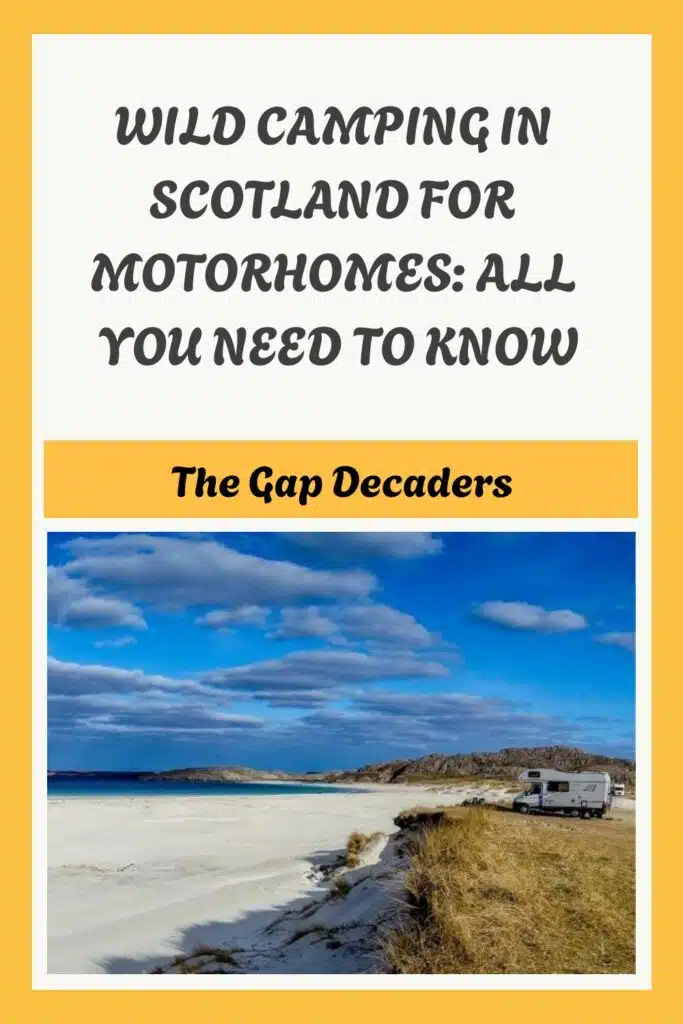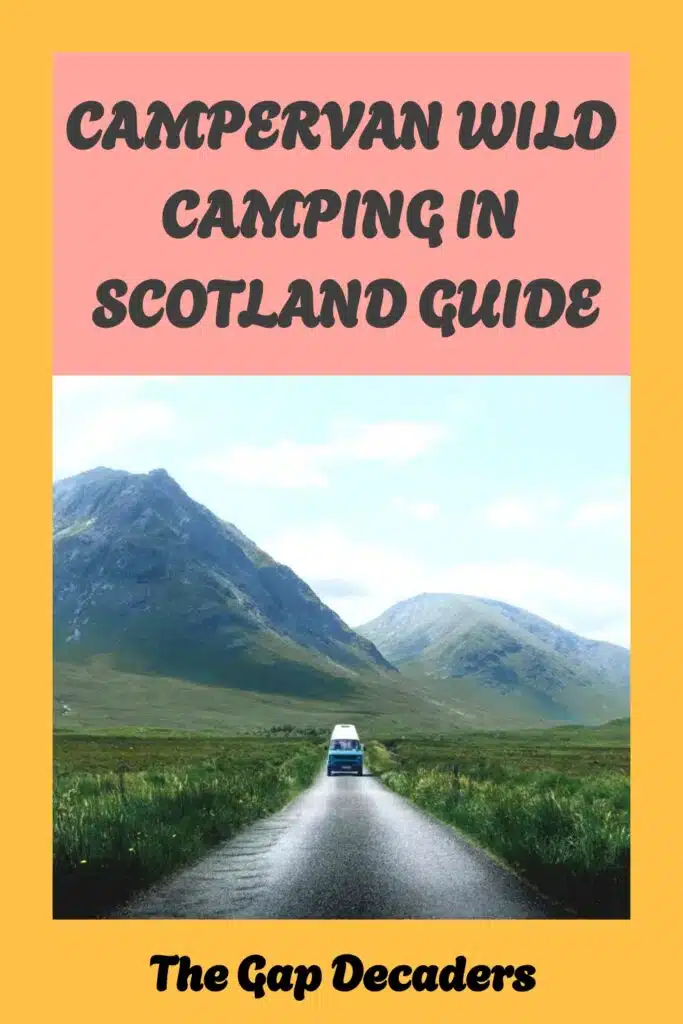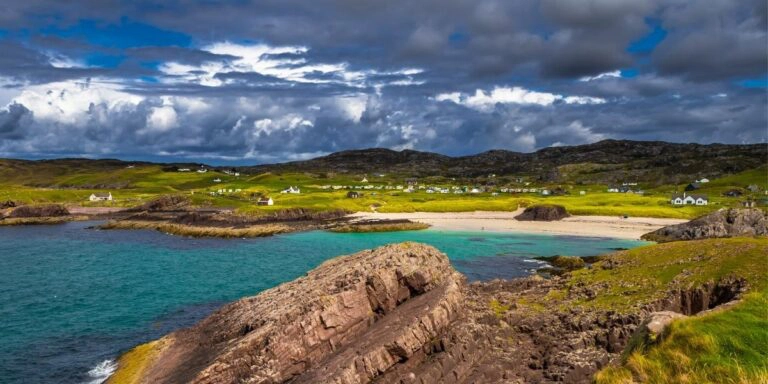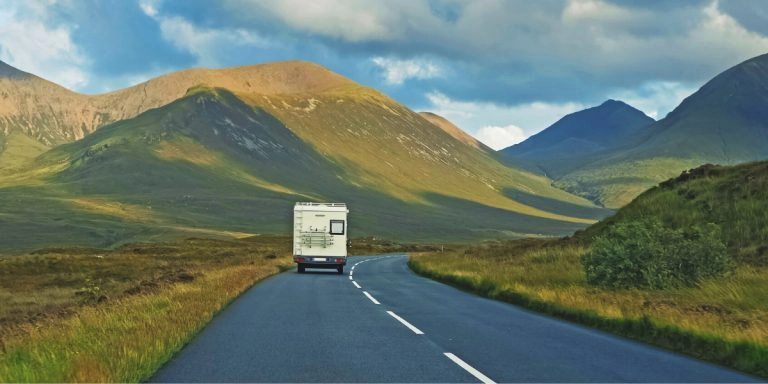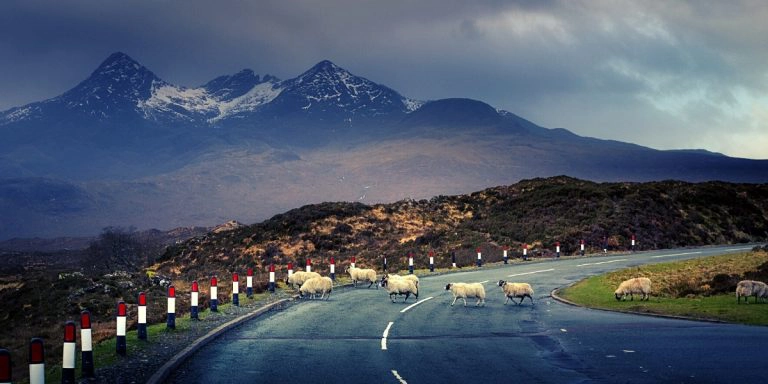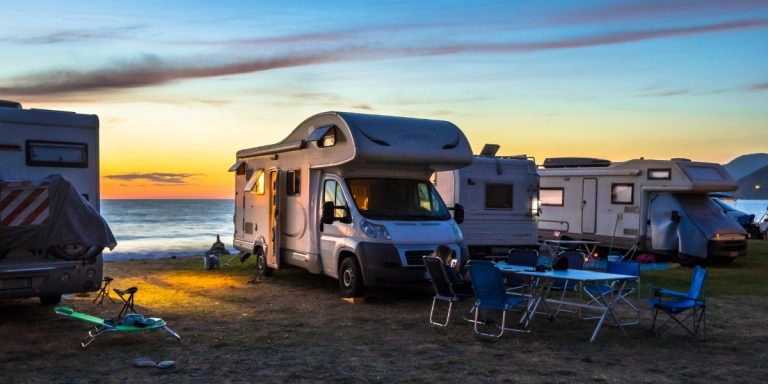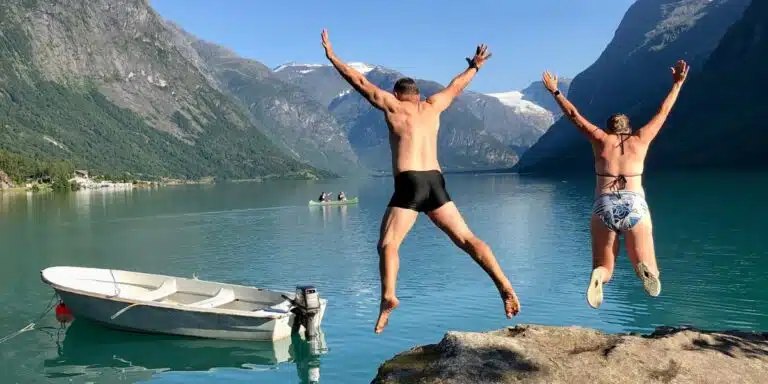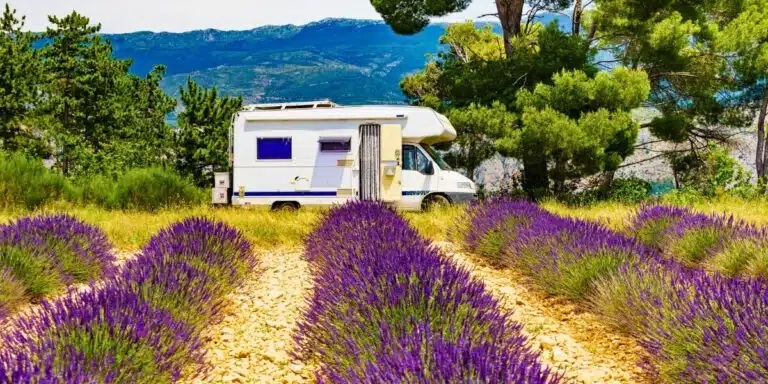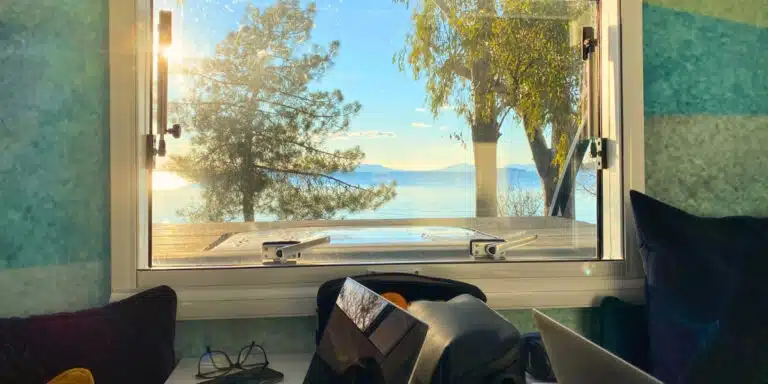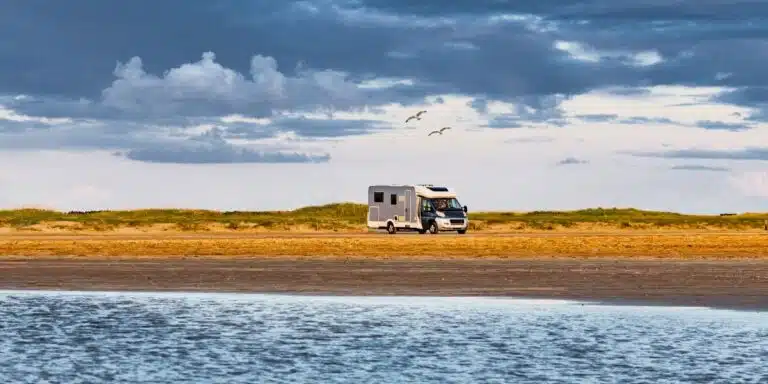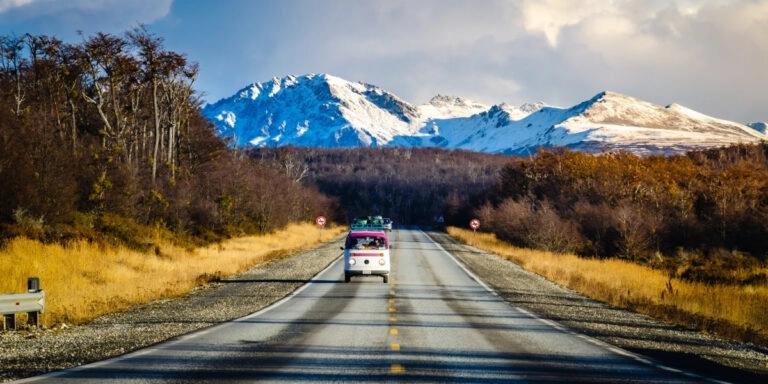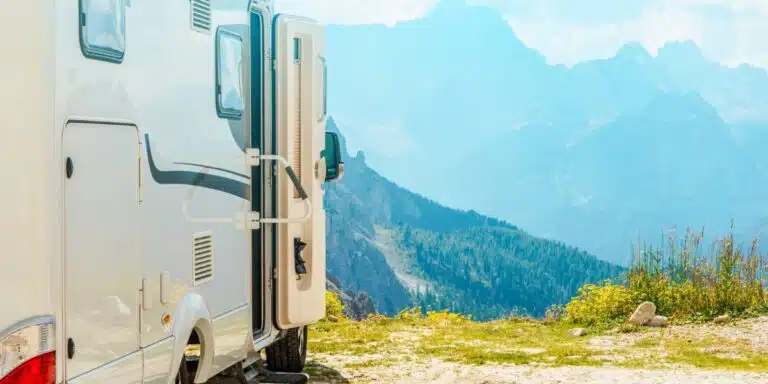This post may contain affiliate links, from which we earn an income. Click here to read our affiliate policy.
How to Wild Camp in Scotland in a Motorhome or Campervan
Scotland is a hugely popular motorhome destination offering dramatic landscapes of huge skies, towering mountains and gorgeous coastlines. Add to that fantastic roads and routes, rich history and delicious local cuisine, and it’s no wonder it’s such a popular motorhome holiday destination.
There are also plenty of great campsites and overnight stops, but if you prefer to wild camp in the untamed and remote landscape in your motorhome, we’ve got all the information you need to do so safely and within the rules in our wild camping in Scotland guide.
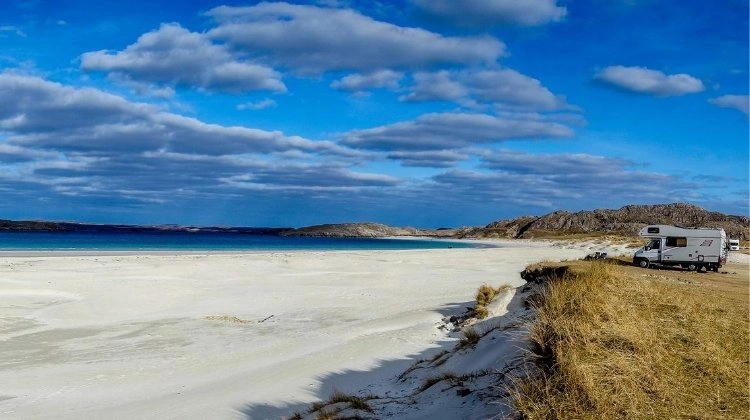
Motorhome Wild Camping in Scotland
What is Motorhome Wild Camping?
Wild camping in a motorhome is the practice of staying overnight in a spot that is not in a campsite, aire or other designated motorhome camping place. It means camping without access to tap water, toilet facilities or showers and no means to plug in for electricity.
Often called off grid camping, wilding or free camping, wild camping in a motorhome is not the same as wild camping in a tent, when you have to carry everything you need, including your sleeping bag, cooking equipment, food and water bottles on your back.
In fact, the Scottish Outdoor Access Code does not recognise that wild camping can be done in a vehicle (that includes motorhomes, campervans, cars with rooftop tents and cars) and only recognises wild camping in a tent.
Terms like free parking and off grid parking may be more appropriate when camping in this way in Scotland.
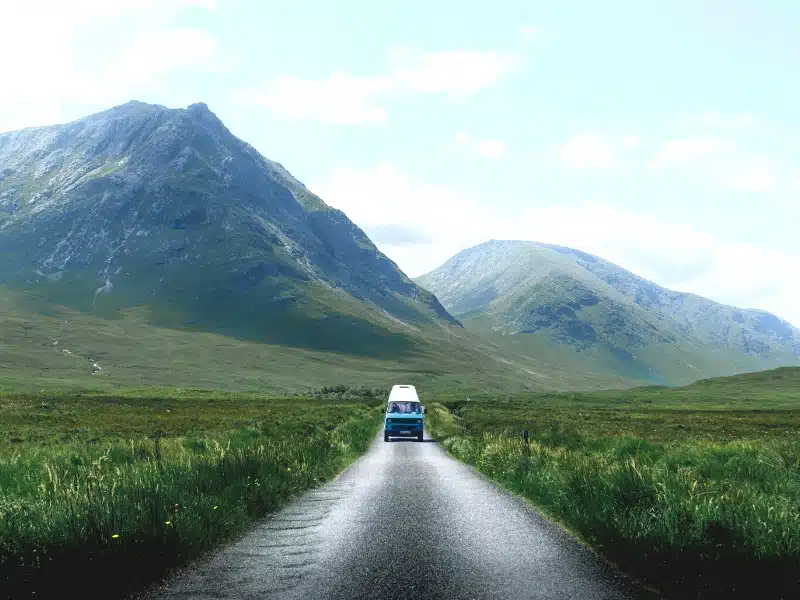
Should I Motorhome Wild Camp in Scotland?
As we were putting together this post, it occurred to us that we were encouraging an activity that has received quite a bit of negative press attention in recent years and has led to local community resistance to motorhome visitors in many of the popular tourist destinations in the UK, including Scotland.
The number of people travelling and using motorhomes in the UK since 2020 has increased exponentially, especially in the summer months, due to EU travel restrictions and increases in motorhome ownership, leading to overcrowding at many popular beauty spots and attractions.
Places like the Scottish Highlands, home to the North Coast 500, and the Isle of Skye have been overwhelmed by the numbers of visitors since the pandemic. Often roads are too narrow for large vehicles and local infrastructure is unable to cope with the influx of so many vehicles and people.
Wild campers can exacerbate the problem when they camp irresponsibly or illegally and leave their waste behind. We’ve all seen the images on the news and social media of people dumping the contents of their toilet cassette in a lay-by, causing traffic jams on single track roads or camping on private land without permission.
We are wild campers at heart and love the solitude, peace, big landscapes, and freedom to get away from it all. We will continue to wild camp in Scotland in remote spots well away from major tourist attractions and abiding by the law. We will always be discreet and respectful and remember that our holiday destination is someone else’s home.
If you follow the rules and regulations and leave no trace, then there is no reason you shouldn’t take a Scottish wild camping trip in your motorhome.
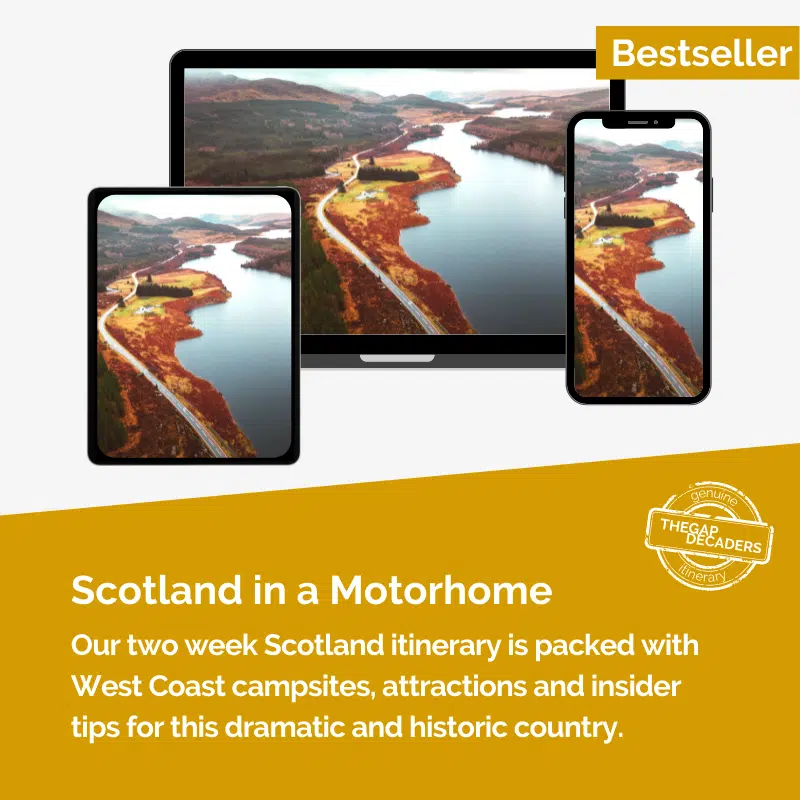
Scotland 2 Week Motorhome Itinerary
Let us do the planning for you and grab our Scotland motorhome itinerary, packed with campsites, aires, attractions and insider tips.
Let us do the hard work for you! Get up every day knowing your campervan trip is planned with driving routes, overnight stops and attractions marked out for you on your interactive map.
Laws for Motorhome Wild Camping in Scotland
It is illegal to wild camp in the United Kingdom (including Scotland) in a motorhome or campervan without explicit permission from the landowner. In reality, locating and asking the landholder (potentially a national park or government body) would be impossible and you can’t just pitch up on private land for an overnight stop and hope for the best.
The Land Reform Act 2003 provides rights of access to most land, subject to responsible behaviour as defined in the Scottish Outdoor Access Code.
You may think that this gives rights like Norway’s allemannsretten (everyman’s rights), which allows free roaming and wild camping. The code states:
The code is also very clear that those wild camping rights do not apply to motorhomes or campervans and says:
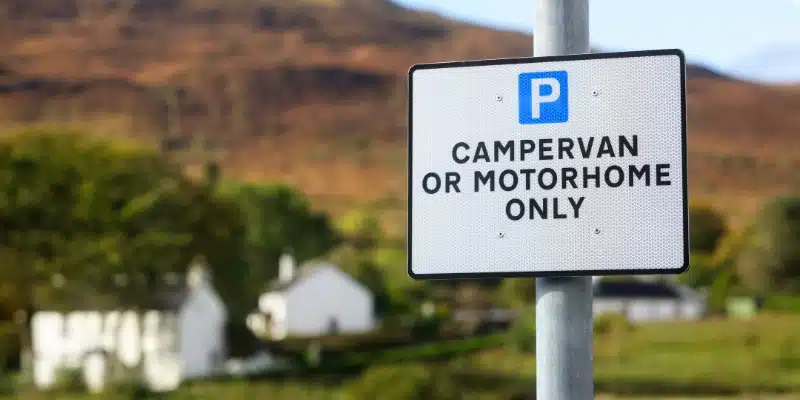
How Can I Wild Camp Legally in My Motorhome in Scotland?
Having read the legal stuff, you may be thinking that it’s not possible to wild camp in a motorhome in Scotland. That’s understandable!
Having read the legal stuff, you may be thinking that it’s not possible to wild camp in a motorhome in Scotland. That’s understandable!
But if you follow our tried and tested wild camping tips and simple rules, you’ll find it is possible to wild camp in Scotland legally and safely. In fact, once you’ve got your first wild camp done and dusted, you’ll wonder what all the fuss was about!
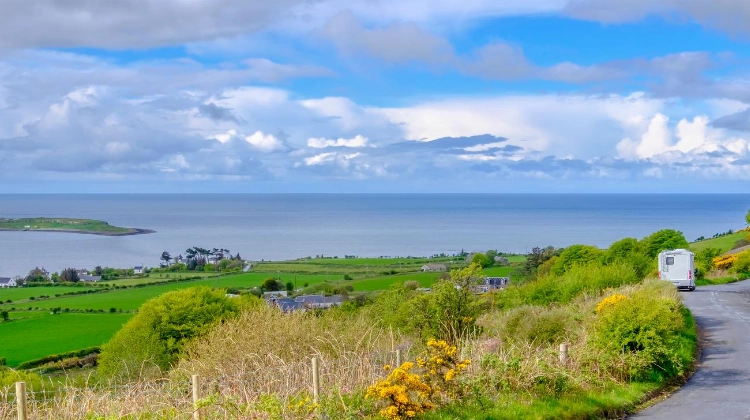
Scotland Wild Camping Know How
If this is your first time wild camping in Scotland, the do’s and don’t we share below will help keep you safe, secure and legal.
Things To Do Motorhome Wild Camping in Scotland
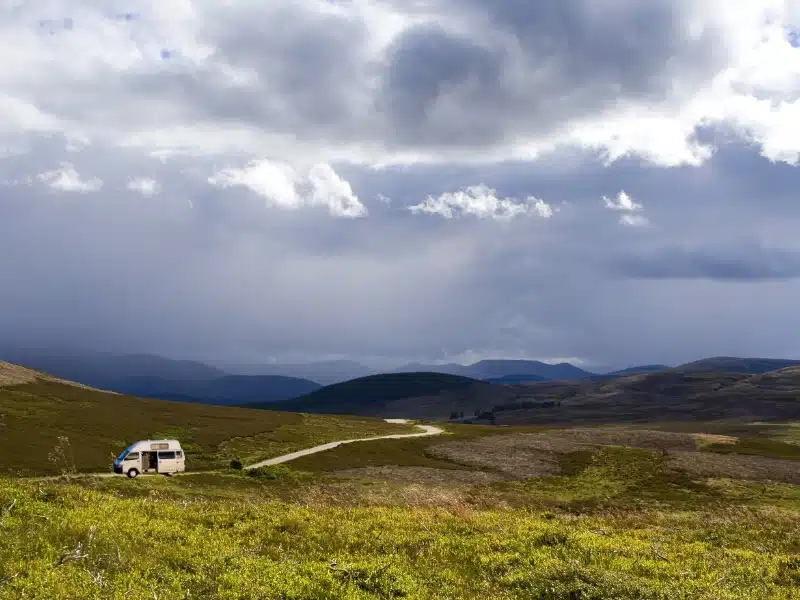
Things Not To Do Campervan Wild Camping in Scotland
Recommended Reading
The Ultimate Guide to Motorhoming & Campervanning in Scotland
How to Take a North Coast 500 Motorhome Trip
Scotland Road Trip: 8 Incredible Routes
How to Find Free Overnight Motorhome Parking UK & Europe
How Can I Find Free Camping Spots in Scotland?
The Internet & Apps
The best way to find wild camping spots for motorhomes and camper vans is to use apps like Park4Night and Campercontact. Both have user feedback, interactive maps, thousands of wild motorhome camping sites, spots and places where you can park and camp for free, as well as official campsites and overnight stops.
Some of these spots are in more remote or rural locations with no one else for miles, places with no light pollution where you can see the Northern Lights and incredible views.
The app will usually provide you with a few images of the place and reviews from other motorhomers who have wild camped there, which is helpful when you are considering the appropriateness of the place or if you’re in a larger vehicle and want to be sure of access.
We like both these apps because they have some of the largest databases in the sector with the best places, but there are lots of other motorhome parking apps which you could try.
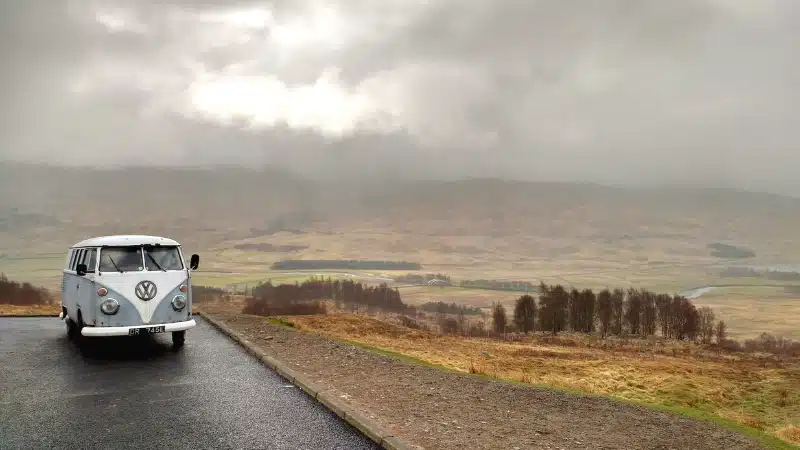
Brit Stops
You could also use Brit Stops for free overnight motorhome parking in Scotland. Pubs which belong to the Brit Stops scheme allow motorhomes to stay in their car park at no cost.
Some people have a drink or meal but this is not a requirement of the scheme. It’s unlikely you will find services at many Brit Stops but you will find a warm welcome.
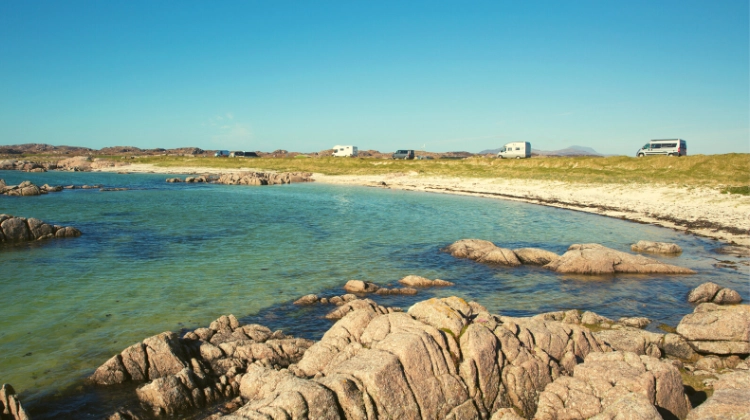
Informal Motorhome Camping in Scotland
Many of the national parks in Scotland have informal (non-commercial) overnight camping sites which cost as little as £3 per night to stay at in a motorhome… not quite campervan wild camping in Scotland but pretty close!
Forestry and Land Scotland trialled a ‘Stay the Night’ scheme, which ran successfully at participating sites between 2021 and 2023. Thankfully, the trial was successful and the scheme has become a permanent fixture and now runs throughout the year.
You have the added benefit of knowing the environment in these areas is being looked after, as well as being able to fill up with fresh water and empty your waste.
You can research these online, but to get you started check out the informal sites known as camping management zones in the Loch Lomond and Trossachs National Park.
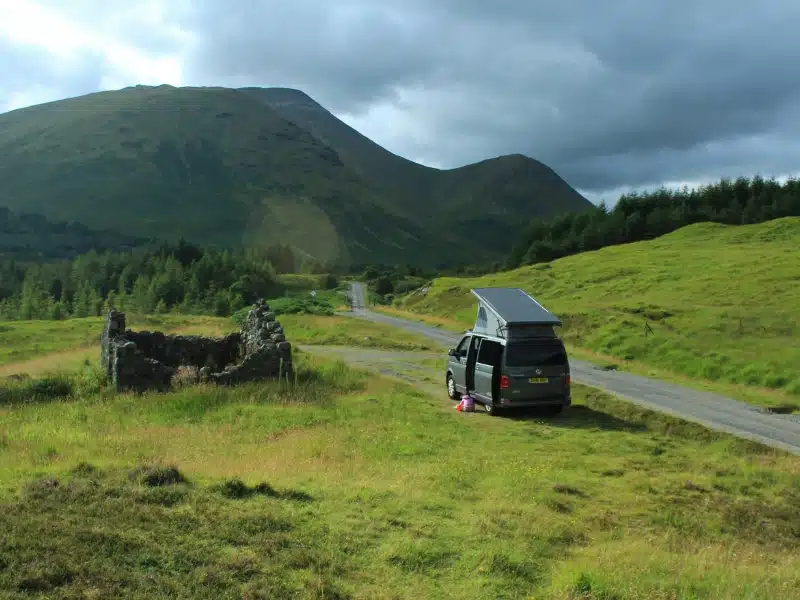
Highland Council Car Parks
Although not really wild camping, parking in a Highland Council parking area is definitely off grid! There are no services so you need to be self-contained for your overnight stay, and you will have to pay a small fee, but these car parks can make a great place to stay for the night. Designated motorhome parking is in place at the following car parks:
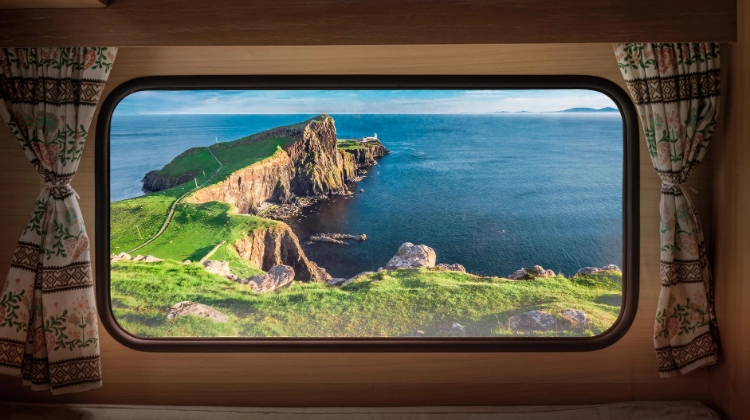
What Motorhome Essentials Do I Need for Wild Camping?
Ensure your motorhome or van is set up for wild camping so you can be self-sufficient when you find that perfect spot. We suggest you need the following five wild camping essentials, plus a few nice-to-haves:
Are you looking for more motorhome tips & tricks? Check out these top posts…
The Questions We’d Ask Before Starting Full-Time Travel Again
Motorhome Travel in France: What Do You Really Need? (+ Checklist)
Working on the Road: 17 Realistic Income Ideas for Vanlife
Keep Your Motorhome Safe with Moving Intelligence UK
Must-Have Storage Ideas for Your Home on Wheels
Must-Have Mobility Aids for a Comfortable Motorhome Journey
Love it? Pin it!
